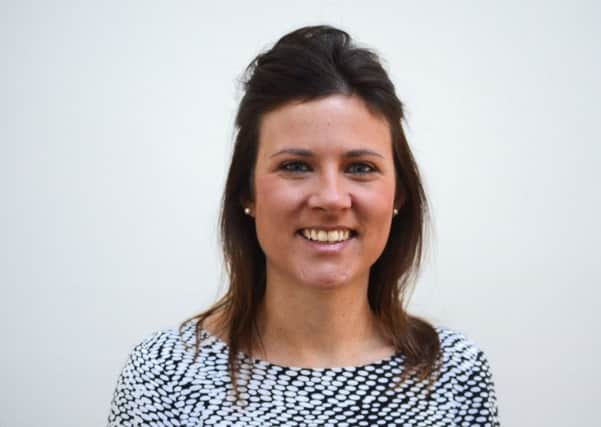Fiona Buchanan: Where’s the justice in a climate crisis that poor people didn’t create?


People are losing food, water, homes and family. The impacts are devastating and can no longer be ignored. This means more extreme climate events, rising sea levels and critical threats to human life. The poorest and most vulnerable people are on the frontline of this climate crisis and are facing its worst effects through more frequent and intense droughts, floods and storms.
Every day, people living in poverty must battle a crisis they did not create, because of inequalities of wealth and power. This is deeply unjust.
Advertisement
Hide AdAdvertisement
Hide AdThis is not news to the communities already on the frontline of the crisis. Christian Aid works alongside farming communities in Malawi, pastoralists in Kenya, families living on marginal land in Bangladesh and many others who have been facing the devastating impacts of climate change in Latin America, Asia, Africa for years. From flooding and hurricanes to droughts and melting glaciers, climate change is driving families from their homes, creating food crises, challenging livelihoods, and fuelling conflict.
Christian Aid exists to create a world where everyone can live a full life, free from poverty. But we cannot end poverty without addressing the climate crisis and the injustice and inequality at its roots. We need a fundamental transformation in the systems that drive both climate change and poverty, and we need solutions that address the underlying drivers of both climate change and global inequality.
Without systemic change, climate change, and the response to it, will further exacerbate existing inequalities and extreme poverty. It will take committed action from governments and individuals alike, but we can all be part of the solution. We need a new model that is sustainable, democratic, and that includes everyone – we need a New Deal for Climate Justice.
Our close work with partners and communities means that Christian Aid is uniquely positioned to raise our voices alongside our global neighbours living in poverty to call for climate justice. In collaboration with our local partners, we work to combat the climate emergency by calling on those with power to tackle the root causes of climate injustice. Joining with passionate local campaigners to bring about lasting change, we highlight that climate change is a matter of justice.
To achieve this, we need a significant shift in our global economy: away from fossil fuels and into sustainable energy, in the way that land and money is owned, managed and invested, and in our patterns of consumption. We believe that a better way is possible, that ambivalence of political leadership and resistance of powerful vested interests can and must be overcome.
As individuals all of us will need to play our part in this great transition – through our political activism, our role in the workplace and our action as consumers. We need to work together to right these wrongs and stop this climate crisis. The good news is that more and more people are waking up to the enormity of the problem and the solutions needed.
Across the world, social movements are pressing their governments to do away with socio-economic models that fuel climate change, risks, and inequality. 2019 was the hottest year on record but it was also a record year for public awareness of the climate crisis, reflected in the youth strikes, Extinction Rebellion protests, the global public response to the burning Amazon and bushfires in Australia, and growing climate-related disasters elsewhere in the world. Together we can drive rich governments to respond and seize this opportunity to take urgent action for climate justice.
We have a unique opportunity in Scotland this year to do just this, as Glasgow prepares to host the UN climate talks (COP26) in November. As thousands of people from across the world come together to push governments on climate ambition, we hope that the talks will offer a chance to prioritise the voices of grassroots and indigenous communities, to unlock progress and to drive levels of ambition across the world, with tangible outcomes achieved.
Advertisement
Hide AdAdvertisement
Hide AdWe also know that this moment offers an invaluable chance to build the power of the climate movement to sustain its journey towards climate justice. If we act now, we can build a better world, where everyone can flourish. Stand together with Christian Aid to fight this climate crisis. To find out more how to campaign with Christian Aid, go to caid.org
Fiona Buchanan, campaigns and advocacy coordinator for Christian Aid Scotland.